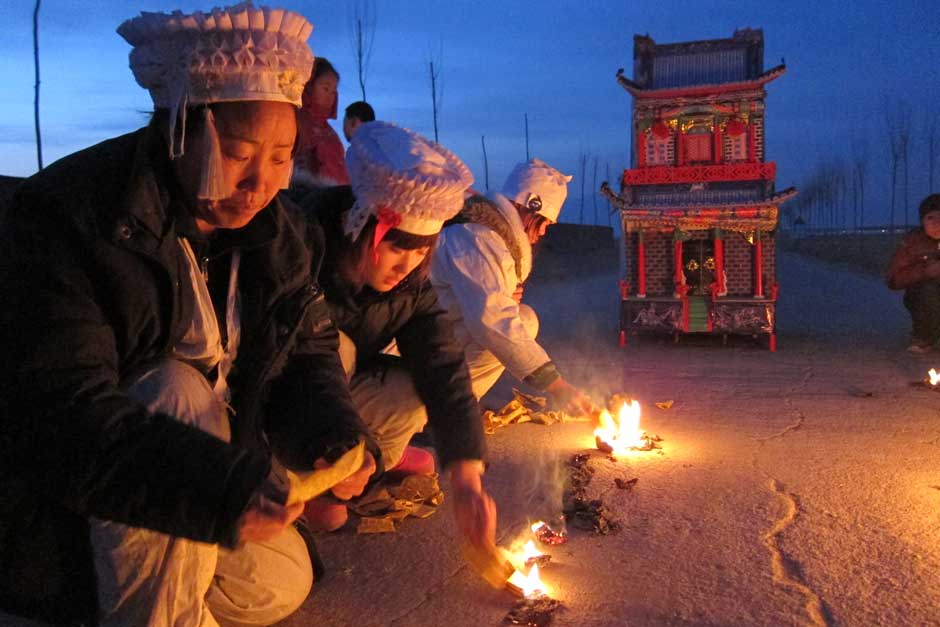Richard Madsen is one of the modern-day founders of the study of Chinese religion. A professor at the University of California San Diego, the seventy-three-year-old’s works include Morality and Power in a Chinese Village, China and the American Dream, and China’s Catholics: Tragedy and Hope in an Emerging Civil Society. He’s now working on a book about happiness in China. I recently spoke to Madsen in Chicago, where he was addressing a meeting of Catholic leaders who deal with the Church in China.
Ian Johnson: Are people in China happy?
Richard Madsen: According to one survey, the happiness level is diminishing. The pace of economic growth is not continuing like it was. You still have people becoming fabulously wealthy and crassly displaying it, but that feeds also into a deteriorating moral climate.
This is the subject of your next book.
My new research project is on searching for a good life in China in an age of anxiety. Where do they see their lives going? Where do they see China going? It’s aimed at tapping into people’s sense of meaning. I’m doing it with several other colleagues.
Will this be a Chinese version of Habits of the Heart, your 1985 book with Robert Bellah about happiness in the US?
That’s the hope. Habits was an attempt to get at the moral climate of America—problems of American individualism amid declining expectations. America in the 1980s was going through a wrenching adjustment. First of all and crucially, American standards of living had begun to fall since the Vietnam War era. Actually I think they say that, in 1971, per capita income, adjusted for inflation, was starting to fall. And then America’s role in the world was challenged. That’s what undid Jimmy Carter’s presidency—the Iranian revolution and things like that. There was a sense of a diminution of life prospects, and American optimism was threatened. There was uncertainty about where the country was going, and also a sense that older moral values were in decline.
In China it’s a bit different. But people’s lives are disrupted by urbanization, economic change, and so on. There’s also a collapse of Marxist ideology and a sense of dislocation. There is a need for new moral anchors.
When you talk about this dislocation, is there a feeling that China has had thirty years of go-go growth and now is slowing down?
Yes, absolutely. The sense that the government is thumping its chest and having this nationalistic tone, it’s a bit like whistling in the dark. We’re strong and great and all that, but at the same time the growth is starting to hit some snags. So that leads to a confusing situation.
But how do you gauge happiness in a population of 1.3 billion people?
There’s a whole new discipline now, stretching from psychology to economics, on happiness. You get economists who do these studies, such as happiness indexes in countries. How happy are you on a scale of one to ten, and they aggregate that. I think the happiest are the Danes and—I’m of Danish origin—but we Danes don’t expect that much out of life, so it’s easier to be satisfied.
The problem with these things is they need to be contextualized. It’s about meaning, so it’s not just about pleasure and pain and how do you quantify it. It’s about what’s important to them in their life, how do they understand pleasant and unpleasant experiences in life. So we will rely mostly on interviews.
Is the growing unhappiness feeding the religious revival in China?
In the reform era, the revival of religion is probably a quest to return to a normal life, to carry out normal festivals, to do things in a normal way, which always had a religious element to it in China. In China, religion has always been more about practice than about belief. You do these things—you sweep the graves of your ancestors because that’s what you do to remain in connection with your family. People have been dislocated from their villages, but there’s a sense that you have to maintain your roots. So they might go back and rebuild a temple or ancestral hall.
Where do you see this revival now? Has it peaked already or is it continuing?
I don’t think it’s peaked. I think there has been an outburst of it as people have had enough prosperity to afford it, along with the government’s relaxation. There was pent-up demand, but it’s still got a ways to grow. I somehow think that as China becomes more urbanized, and as that rural experience doesn’t have the same meaning it had in the past, it may be replaced by other spiritual quests.
Advertisement
If you look at Taiwan, they’re gravitating toward humanistic Buddhism [a form of Buddhism that focuses on charity, public engagement, and NGO-type work]. They are leaving behind that old temple worship. If you go to the countryside you still see a lot of temples but not so much in the cities. That could happen in China too. Right now that’s harder due to restrictions on civil society, but it could happen.
In your last book, Democracy’s Dharma: Religious Renaissance and Political Development in Taiwan, you suggested religion was a building block of democracy in Taiwan. Does the Chinese government see religion as a threat in this way?
When I talked about it in China once, a guy from the academy of sciences said: That’s the way it’ll be here, definitely! But it’s hard to know.
You talked about Taiwan entering a sort of Axial Age—a period of religious growth and creativity analogous to what took place roughly from 800 to 200 BCE when new ideas flourished in Greece, Israel, Persia, India, and China.
Yes, under Bellah’s influence I became very interested in that. I’m not sure if “axial” is the right word but there’s a lot of religious creativity in Taiwan and universalization of these values in very creative ways. So I was looking at the sources of this creativity. You find it when an old way of life is under great stress and yet it hasn’t broken down, so people have the need for creativity but also resources to do something. In China’s Warring States period you had things falling apart and Confucius was looking for a new order, but they had traditions to build upon. Or in ancient Israel you had the tradition of prophets to build upon. There was great instability but key parts were alive. If the instability, or the attacks, or the invasion, destroys it, then there’s nothing left to work with. Usually in the past you’d see this creativity in the margins of empires.
I suppose that would make sense in Taiwan too, on the periphery and with an old system that’s breaking down but maybe not as broken as in China. And it can spread to China.
Not just China but around the world. Being successful in your own country isn’t necessarily key. It gets exported. Look at Tibetan Buddhism. It may well be destroyed in its homeland but through the Dalai Lama it’s gone global.
Is that happening with Christianity in China today? The former Time journalist David Aikman posits that China might become a Christian country.
If you look at the growth and project that over the next fifty or one hundred years, that would happen, but I would predict that the current trajectory will plateau out, like in Taiwan, in the range of 7 percent of the population. Maybe 10 percent. It’s a guess, a hypothesis. But other things like Buddhism are becoming more popular. People will look at other things for meaning and that will crowd out Christianity.
The Catholic Church has not spread as quickly in China as evangelical Christianity.
There are about twelve to fourteen million Catholics, which in absolute terms isn’t insignificant, although it’s just 1 percent of the population. That pretty much tracks the population increase since 1949. In 1949 there were three million Catholics and now there are twelve million. The national population has about quadrupled so it’s about right. One of the strengths of the Catholic Church is it’s been tied to community and family, but it’s also a weakness too. It’s harder for outsiders to come into it. And the dependency on clergy also inhibits it. So for things like that it’s growing more slowly. And naturally you have the split of the official Catholic Church in China from the Vatican, which has created a schism between the official Church and the underground church [which is more loyal to Rome].
Does all this mean that Christianity has failed in China?
It hasn’t failed. What does success mean for a religion? Taking over the country? Or is it just becoming an accepted part of the plurality of understandings, and permanent in a sustainable way? You can definitely argue that it’s like that for Christianity in China today. We’re seeing new ways for people to find meaning in their lives. It’s definitely changing and broadening. Christianity is part of it.



